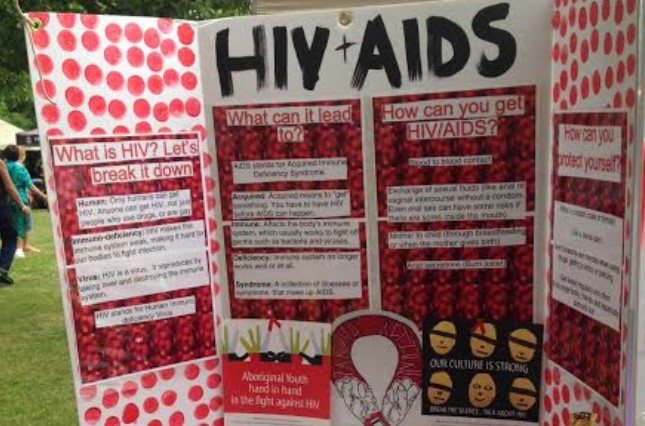Community-Based Research Award
Native Youth Sexual Health Network
Research Team: Alexa Lesperance, Jessica Danforth, Sarah Flicker, Renee Monchalin, Carmen Logie
What is this project about?
Alexa Lesperance, a Native Youth Sexual Health Network Youth Facilitator, with the help of her family and community (Naotkamegwanning First Nation), created the Sexy Health Carnival to challenge the shame, blame and stigma commonly associated with sexual health programming. The Carnival was created by community members for community members and takes a strengths-based approach to promoting Indigenous youth health. It offers accessible “safer practices” content that makes learning health information fun and inspiring for youth, community members and Elders. It has a variety of booths that cover topics such as suicide, harm reduction, consent, sexual violence prevention, HIV and other STI’s, family planning and masturbation. Each booth was researched and artistically designed to offer culturally-safe, accurate and non-judgmental information. The carnival also features interactive games, prizes, and safer sex supplies, as well as content and age-appropriate activities for younger children so that their parents, siblings or other care-takers can participate in the carnival. It has become one of the Network’s most popular outreach tools, with many requests each year from Indigenous communities and events for the Carnival to visit their community.
In the summer of 2014, an evaluation was proposed by Indigenous youth leaders to better understand the impact of the Sexy Health Carnival. The evaluation was a community-based participatory action research methodology that used iPads to survey youth who interacted with the carnival. It was piloted at four powwow events held across Ontario with funding from OHTN. Powwows are gatherings that celebrate, reclaim, and maintain local traditions, ceremonies and culture and that gather large numbers of Indigenous people together. One hundred and fifty four youth filled out the survey.
Outcomes
Survey results show that the Sexy Health Carnival is welcomed by youth in powwow settings and is being favourably received. Findings showed that:
- “Culture” is fundamental to Indigenous youth sexual health education, and powwows are an important place to discuss sexual health and HIV. The Sexy Health Carnival explicitly engages culture by referencing traditional languages, teachings and ceremony.
- 99% of youth who participated in the survey said they would come back to the Carnival at future powwows. However, approximately 40% also stated that it made them “very” or “somewhat” uncomfortable. This may be due to ingrained notions of stigma or shame.
- Youth who said they were likely to have sex at the powwow were also likely to report the intention of using condoms acquired at the Carnival. Although sexually-active youth reported a low rate of condom use with previous partners, their intention to use the condoms provided suggests that the program may contribute to safer sex practices.
This team recently received a CIHR grant to expand outreach, adapt the carnival to Metis and Inuit settings and share wise practices.
